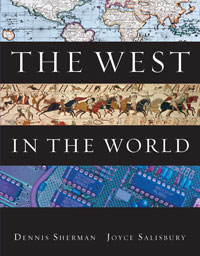1 A) the earth revolves around the sun. B) the sun revolves around the earth. C) one earth-day is the equivalent of 24 hours. D) the earth is the center of the universe. 2 A) The planets move in ellipses around the sun. B) The planets' velocity varies according to their distance from the sun. C) The planets rotate on their axes at the speed of light. D) The physical relationship between the moving planets can be expressed mathematically. 3 A) support it with church doctrine. B) denounce it and put its supporters on trial. C) fund the scientific work of its adherents. D) popularize it through sermons. 4 A) of a heliocentric universe. B) that common substances can be turned into gold through the science of alchemy. C) that the moon's surface is rugged. D) of the universal law of gravitation. 5 A) "Every particle of matter in the universe attracts every other particle with a force varying inversely as the square of the distance between them and directly proportional to the product of their masses." B) "I think, therefore I am." C) "Evil doers who while living have done damage are of benefit after their death." D) "The more learned, the more perverted." 6 A) the printing press. B) the opportunity to travel to and explore the New World. C) the support of wealthy patrons. D) exposure to and discussion of new ideas. 7 A) court etiquette. B) the methods of science. C) Latin and Greek. D) geography. 8 A) reason and nature were compatible. B) the universe is heliocentric. C) fire is an element. D) all men are governed by reason. 9 Essay Concerning Human Understanding that human learning is the result ofA) heredity. B) human experiences. C) divine revelation. D) youthfulness and cerebral dexterity. 10 A) it often led to public protests. B) it motivated certain groups to emigrate to new lands. C) shared religious principles served as a buttress to and inherent part of European political systems of the time. D) it sparked the creation of new and extreme religious sects. 11 A) England had just defeated French forces in the North American French and Indian War. B) they respected English social equality. C) of its enviable navy. D) they believed it offered greater individual freedom and admired its political system. 12 A) further discoveries. B) mandatory education. C) human progress. D) universal suffrage. 13 A) nature. B) a European monarch. C) progress. D) England. 14 A) Voltaire's Candide . B) the Encyclopedia . C) the American Declaration of Independence . D) Rousseau's The Social Contract . 15 A) Isaac Newton. B) John Locke. C) Voltaire. D) Denis Diderot. 16 philosophes believe would be most effective at enacting Enlightenment reforms, such as religious toleration, impartial laws, and freedom of speech?A) democracy B) enlightened absolutism C) oligarchy D) constitutional monarchy 17 A) rehabilitate the criminal, not simply punish. B) be concerned with protecting society from criminals. C) punish criminals outside of traditional prisons. D) provide for passage for the worst offenders to the New World. 18 philosophes in France, most male thinkers believed they were best suited forA) government positions. B) teaching in the nation's schools. C) domestic affairs in the home. D) the writing and publishing of Enlightenment ideas. 19 A) salons B) bookstores C) academies D) Freemason lodges 20 A) empirical investigation B) Biblical authorities C) heliocentrism D) mathematical reasoning 21 A) the Catholic Church B) royal courts C) private patronage D) salons





